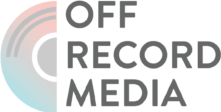Sometimes when words don’t work music does. Whether you are feeling upset or on top of the world, music is always there to compliment the mood.
It’s no wonder why there are thousands of different curated playlists that pop up when. Just type in, “breakup”, “gut wrenching”, or even “when you want to hit someone with your car”, on your favorite music app, and you’ll see evidence of others who have gone through the same emotions you have. A lot of times a hugging a stuffed animal or crying in a pillow won’t make the feelings go away, but oddly enough, when a song has the right beat or rhythm, it can do wonders to the psyche, but why?
Music therapy is an evidence based technique that changes one’s emotions while listening to a song. Neurologically speaking, music engages with multiple regions of the brain. These regions are responsible for emotions, memory, and even motor skills. Not only does music effect one’s emotions, but different music genres also can have varying effects on the body and mind.
Pop music, for example, is known to be connected with the brain’s reward center, which stimulates the release of feel good hormones such as dopamine and serotonin, giving the listener a boost of energy that can put them in a feel good mood.
Classical music, on the other hand, is known for its more calming effects, by lowering cortisol, a stress hormone, levels. Listening to Mozart and Beethoven can actually help with productivity and focus. Similarly electronic or ambient music also aids in the reduction of stress. They also help with attention deficit disorder, or ADHD, and even improves sleep quality.
If you find yourself gravitating towards blues or country that has more of a storytelling side of music, it can help with emotional identification. These songs have the ability to resonate more with the listener, allowing one to have a feeling of comfort, and aid with emotional identification. Relatability in music can give a person a healthy coping mechanism to feel whatever feelings that are bottled up inside, whether it be heartbreak or just a need for a good cry on a rainy day.
Overall, music is not only used to enjoy lyrics, harmonies, and addictive beats, but can also be a great form of therapy. By understanding how different genres of music affect the brain and the body, listeners can harness music’s healing power, which can promote emotional well-being, cognitive functioning, and even physical health. So when in doubt, it’s always a good idea to jam it out!
References :
Nami, & Nami. (2024, February 7). The widely neglected healing power of music. NAMI.
I am currently attending the University of North Texas with a photojournalism major. I love going to concerts of all genres, whether I am stage diving or headbanging, I never miss an opportunity to appreciate live music. In my free time, I enjoy thrifting for CD's and records, spending time with my cats, going to art exhibits, and traveling (especially to NYC). My biggest inspiration is Danny Clinch, and one day I aspire to open up my own gallery to showcase my work!


